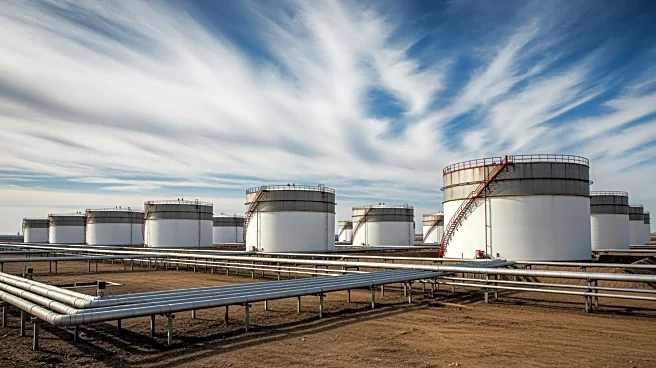What's Happening?
China has been actively stockpiling oil since the beginning of the year, with estimates suggesting that approximately a million barrels a day have been reserved for future use. This strategic move comes in response to US sanctions imposed on Russian oil giants
Rosneft and LUKoil, which have disrupted global energy markets. The sanctions, announced by the US, aim to cut off these Russian companies from American banking systems, thereby preventing them from operating in US dollars. As a result, China's state oil companies have paused their imports of Russian crude. Despite the sanctions, China, a major buyer of Russian oil, is expected to find ways to continue sourcing discounted Russian oil through intermediaries.
Why It's Important?
The US sanctions on Russian oil companies are part of a broader strategy to pressure the Kremlin amid the ongoing conflict in Ukraine. By targeting major Russian oil producers, the US aims to weaken Russia's economic base, which heavily relies on oil exports. For China, the sanctions pose a challenge as it is a significant importer of Russian oil. However, China's stockpiling efforts provide a buffer against potential supply disruptions. The situation highlights the geopolitical complexities of energy trade, where economic sanctions can have far-reaching impacts on global markets and international relations. The ability of Chinese firms to navigate these sanctions will be crucial in maintaining their energy security and economic stability.
What's Next?
The enforcement of US sanctions and the potential for secondary sanctions on countries continuing to trade with Rosneft and LUKoil will be critical in determining the sanctions' effectiveness. China's response, including its use of intermediaries and potential diplomatic engagements, will shape the future dynamics of the oil market. Additionally, the international community will be watching to see if the sanctions lead to any shifts in Russia's stance on the Ukraine conflict. The situation remains fluid, with potential implications for global energy prices and geopolitical alliances.

















